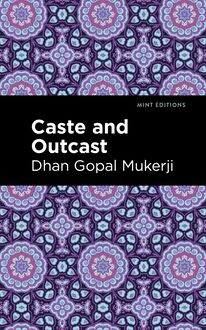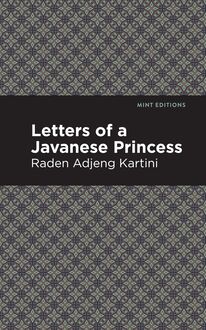-
 Univers
Univers
-
 Ebooks
Ebooks
-
 Livres audio
Livres audio
-
 Presse
Presse
-
 Podcasts
Podcasts
-
 BD
BD
-
 Documents
Documents
-
- Cours
- Révisions
- Ressources pédagogiques
- Sciences de l’éducation
- Manuels scolaires
- Langues
- Travaux de classe
- Annales de BEP
- Etudes supérieures
- Maternelle et primaire
- Fiches de lecture
- Orientation scolaire
- Méthodologie
- Corrigés de devoir
- Annales d’examens et concours
- Annales du bac
- Annales du brevet
- Rapports de stage
La lecture à portée de main
Vous pourrez modifier la taille du texte de cet ouvrage
Découvre YouScribe en t'inscrivant gratuitement
Je m'inscrisDécouvre YouScribe en t'inscrivant gratuitement
Je m'inscrisEn savoir plus
Vous pourrez modifier la taille du texte de cet ouvrage
En savoir plus

Description
The Reign of Greed (1891) is a novel by José Rizal. Published in Belgium, the novel was a sequel to Touch Me Not (1887), both of which were written in Spanish. Blending aspects of his own life story with his critique of Spanish imperialism in the Philippines, Rizal continues the journey of Crisóstomo Ibarra from centrist reformer to revolutionary leader. Banned by Spanish authorities, the novel was smuggled into his home country, where it quickly galvanized Rizal’s fellow nationalists in opposition to the Spanish Empire. Despite his attempts to reform the local government of his native San Diego, Ibarra is placed in prison on false charges of rebellion. Forced to escape or face execution, he chooses the former. When a firefight with authorities leaves his comrade Elias dead, he manages to make his way out of the country. Thirteen years later, by now presumed dead by friends and foes alike, he returns to the Philippines as Simoun, a shadowy jeweler. Moving in secret, he begins spreading his anti-imperial message among the local people while gathering the weapons and supplies he will need to overthrow the government. Before he can carry out his plan, however, he must rescue his love Maria Clara from confinement. With a beautifully designed cover and professionally typeset manuscript, this edition of José Rizal’s The Reign of Greed is a classic work of Filipino literature reimagined for modern readers.
Sujets
Informations
| Publié par | Mint Editions |
| Date de parution | 08 juin 2021 |
| Nombre de lectures | 0 |
| EAN13 | 9781513223407 |
| Langue | English |
| Poids de l'ouvrage | 3 Mo |
Informations légales : prix de location à la page 0,0500€. Cette information est donnée uniquement à titre indicatif conformément à la législation en vigueur.
Extrait
The Reign of Greed
José Rizal
The Reign of Greed was first published in 1891.
This edition published by Mint Editions 2021.
ISBN 9781513225005 | E-ISBN 9781513223407
Published by Mint Editions®
minteditionbooks.com
Publishing Director: Jennifer Newens
Design & Production: Rachel Lopez Metzger
Project Manager: Micaela Clark
Translation by Charles Derbyshire
Typesetting: Westchester Publishing Services
C ONTENTS I. O N THE U PPER D ECK II. O N THE L OWER D ECK III. L EGENDS IV. C ABESANG T ALES V. A C OCHERO’S C HRISTMAS E VE VI. B ASILIO VII. S IMOUN VIII. M ERRY C HRISTMAS ! IX. P ILATES X. W EALTH AND W ANT XI. L OS B AÑOS XII. P LACIDO P ENITENTE XIII. T HE C LASS IN P HYSICS XIV. I N THE H OUSE OF THE S TUDENTS XV. S EÑOR P ASTA XVI. T HE T RIBULATIONS OF A C HINESE XVII. T HE Q UIAPO F AIR XVIII. L EGERDEMAIN XIX. T HE F USE XX. T HE A RBITER XXI. M ANILA T YPES XXII. T HE P ERFORMANCE XXIII. A C ORPSE XXIV. D REAMS XXV. S MILES AND T EARS XXVI. P ASQUINADES XXVII. T HE F RIAR AND THE F ILIPINO XXVIII. T ATAKUT XXIX. E XIT C APITAN T IAGO XXX. J ULI XXXI. T HE H IGH O FFICIAL XXXII. E FFECT OF THE P ASQUINADES XXXIII. L A U LTIMA R AZÓN XXXIV. T HE W EDDING XXXV. T HE F IESTA XXXVI. B EN -Z AYB’S A FFLICTIONS XXXVII. T HE M YSTERY XXXVIII. F ATALITY XXXIX. C ONCLUSION
I
O N THE U PPER D ECK
Sic itur ad astra.
One morning in December the steamer Tabo was laboriously ascending the tortuous course of the Pasig, carrying a large crowd of passengers toward the province of La Laguna. She was a heavily built steamer, almost round, like the tabú from which she derived her name, quite dirty in spite of her pretensions to whiteness, majestic and grave from her leisurely motion. Altogether, she was held in great affection in that region, perhaps from her Tagalog name, or from the fact that she bore the characteristic impress of things in the country, representing something like a triumph over progress, a steamer that was not a steamer at all, an organism, stolid, imperfect yet unimpeachable, which, when it wished to pose as being rankly progressive, proudly contented itself with putting on a fresh coat of paint. Indeed, the happy steamer was genuinely Filipino! If a person were only reasonably considerate, she might even have been taken for the Ship of State, constructed, as she had been, under the inspection of Reverendos and Ilustrísimos …
Bathed in the sunlight of a morning that made the waters of the river sparkle and the breezes rustle in the bending bamboo on its banks, there she goes with her white silhouette throwing out great clouds of smoke—the Ship of State, so the joke runs, also has the vice of smoking! The whistle shrieks at every moment, hoarse and commanding like a tyrant who would rule by shouting, so that no one on board can hear his own thoughts. She menaces everything she meets: now she looks as though she would grind to bits the salambaw , insecure fishing apparatus which in their movements resemble skeletons of giants saluting an antediluvian tortoise; now she speeds straight toward the clumps of bamboo or against the amphibian structures, karihan , or wayside lunch-stands, which, amid gumamelas and other flowers, look like indecisive bathers who with their feet already in the water cannot bring themselves to make the final plunge; at times, following a sort of channel marked out in the river by tree-trunks, she moves along with a satisfied air, except when a sudden shock disturbs the passengers and throws them off their balance, all the result of a collision with a sand-bar which no one dreamed was there.
Moreover, if the comparison with the Ship of State is not yet complete, note the arrangement of the passengers. On the lower deck appear brown faces and black heads, types of Indians, 1 Chinese, and mestizos, wedged in between bales of merchandise and boxes, while there on the upper deck, beneath an awning that protects them from the sun, are seated in comfortable chairs a few passengers dressed in the fashion of Europeans, friars, and government clerks, each with his puro cigar, and gazing at the landscape apparently without heeding the efforts of the captain and the sailors to overcome the obstacles in the river.
The captain was a man of kindly aspect, well along in years, an old sailor who in his youth had plunged into far vaster seas, but who now in his age had to exercise much greater attention, care, and vigilance to avoid dangers of a trivial character. And they were the same for each day: the same sand-bars, the same hulk of unwieldy steamer wedged into the same curves, like a corpulent dame in a jammed throng. So, at each moment, the good man had to stop, to back up, to go forward at half speed, sending—now to port, now to starboard—the five sailors equipped with long bamboo poles to give force to the turn the rudder had suggested. He was like a veteran who, after leading men through hazardous campaigns, had in his age become the tutor of a capricious, disobedient, and lazy boy.
Do ñ a Victorina, the only lady seated in the European group, could say whether the Tabo was not lazy, disobedient, and capricious—Do ñ a Victorina, who, nervous as ever, was hurling invectives against the cascos, bankas, rafts of coconuts, the Indians paddling about, and even the washerwomen and bathers, who fretted her with their mirth and chatter. Yes, the Tabo would move along very well if there were no Indians in the river, no Indians in the country, yes, if there were not a single Indian in the world—regardless of the fact that the helmsmen were Indians, the sailors Indians, Indians the engineers, Indians ninety-nine percent, of the passengers, and she herself also an Indian if the rouge were scratched off and her pretentious gown removed. That morning Do ñ a Victorina was more irritated than usual because the members of the group took very little notice of her, reason for which was not lacking; for just consider—there could be found three friars, convinced that the world would move backwards the very day they should take a single step to the right; an indefatigable Don Custodio who was sleeping peacefully, satisfied with his projects; a prolific writer like Ben-Zayb (anagram of Iba ñ ez), who believed that the people of Manila thought because he, Ben-Zayb, was a thinker; a canon like Padre Irene, who added luster to the clergy with his rubicund face, carefully shaven, from which towered a beautiful Jewish nose, and his silken cassock of neat cut and small buttons; and a wealthy jeweler like Simoun, who was reputed to be the adviser and inspirer of all the acts of his Excellency, the Captain-General—just consider the presence there of these pillars sine quibus non of the country, seated there in agreeable discourse, showing little sympathy for a renegade Filipina who dyed her hair red! Now wasn’t this enough to exhaust the patience of a female Job—a sobriquet Do ñ a Victorina always applied to herself when put out with any one!
The ill-humor of the se ñ ora increased every time the captain shouted “Port,” “Starboard” to the sailors, who then hastily seized their poles and thrust them against the banks, thus with the strength of their legs and shoulders preventing the steamer from shoving its hull ashore at that particular point. Seen under these circumstances the Ship of State might be said to have been converted from a tortoise into a crab every time any danger threatened.
“But, captain, why don’t your stupid steersmen go in that direction?” asked the lady with great indignation.
“Because it’s very shallow in the other, se ñ ora,” answered the captain, deliberately, slowly winking one eye, a little habit which he had cultivated as if to say to his words on their way out, “Slowly, slowly!”
“Half speed! Botheration, half speed!” protested Do ñ a Victorina disdainfully. “Why not full?”
“Because we should then be traveling over those ricefields, se ñ ora,” replied the imperturbable captain, pursing his lips to indicate the cultivated fields and indulging in two circumspect winks.
This Do ñ a Victorina was well known in the country for her caprices and extravagances. She was often seen in society, where she was tolerated whenever she appeared in the company of her niece, Paulita Gomez, a very beautiful and wealthy orphan, to whom she was a kind of guardian. At a rather advanced age she had married a poor wretch named Don Tiburcio de Espada ñ a, and at the time we now see her, carried upon herself fifteen years of wedded life, false frizzes, and a half-European costume—for her whole ambition had been to Europeanize herself, with the result that from the ill-omened day of her wedding she had gradually, thanks to her criminal attempts, succeeded in so transforming herself that at the present time Quatrefages and Virchow together could not have told where to classify her among the known races.
Her husband, who had borne all her impositions with the resignation of a fakir through so many years of married life, at last on one luckless day had had his bad half-hour and administered to her a superb whack with his crutch. The surprise of Madam Job at such an inconsistency of character made her insensible to the immediate effects, and only after she had recovered from her astonishment and her husband had fled did she take notice of the pain, then remaining in bed for several days, to the great delight of Paulita, who was very fond of joking and laughing at her aunt. As for her husband, horrified at the impiety of what appeared to him to be a terrific parricide, he took to flight, pursued by the matrimonial furies (two curs and a parrot), with all the speed his lameness permitted, climbed into the first carriage he encountered, jumped into the first banka he saw on the river, and, a Philippine Ulysses, began to wander from town to town, from province to province, from island to island, pursued and persecuted by his bespectacled Calypso, who bored every one that had the mi
-
 Univers
Univers
-
 Ebooks
Ebooks
-
 Livres audio
Livres audio
-
 Presse
Presse
-
 Podcasts
Podcasts
-
 BD
BD
-
 Documents
Documents
-
Jeunesse
-
Littérature
-
Ressources professionnelles
-
Santé et bien-être
-
Savoirs
-
Education
-
Loisirs et hobbies
-
Art, musique et cinéma
-
Actualité et débat de société
-
Jeunesse
-
Littérature
-
Ressources professionnelles
-
Santé et bien-être
-
Savoirs
-
Education
-
Loisirs et hobbies
-
Art, musique et cinéma
-
Actualité et débat de société
-
Actualités
-
Lifestyle
-
Presse jeunesse
-
Presse professionnelle
-
Pratique
-
Presse sportive
-
Presse internationale
-
Culture & Médias
-
Action et Aventures
-
Science-fiction et Fantasy
-
Société
-
Jeunesse
-
Littérature
-
Ressources professionnelles
-
Santé et bien-être
-
Savoirs
-
Education
-
Loisirs et hobbies
-
Art, musique et cinéma
-
Actualité et débat de société
- Cours
- Révisions
- Ressources pédagogiques
- Sciences de l’éducation
- Manuels scolaires
- Langues
- Travaux de classe
- Annales de BEP
- Etudes supérieures
- Maternelle et primaire
- Fiches de lecture
- Orientation scolaire
- Méthodologie
- Corrigés de devoir
- Annales d’examens et concours
- Annales du bac
- Annales du brevet
- Rapports de stage

















